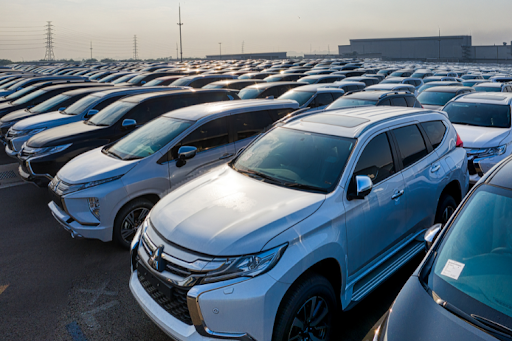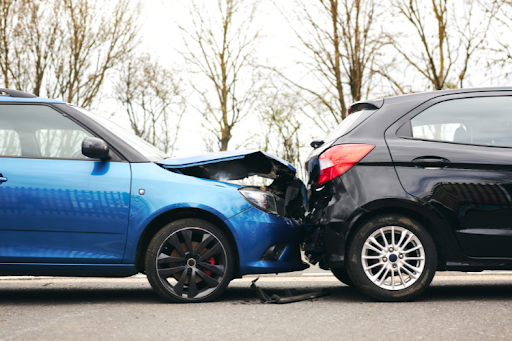Finding the Best Car and Auto Insurance for Your Needs in 2026
Finding the right car insurance doesn’t have to be overwhelming. Whether you’re a new driver or experienced behind the wheel, this guide breaks down the best auto insurance companies, how to compare quotes, and the smartest ways to save on premiums.

If you're a driver, finding the right auto insurance for your budget and needs is important. You may be a new driver or may have been driving for years. Whatever your driving experience, this guide is here to help you. To get the best deal on your car insurance, it's best to compare prices from different companies and ask about discounts for things like safe driving or bundling multiple policies. Also, you’ll need to think about the type of coverage you need, e.g., liability coverage.
We’ll equip you with the right knowledge you need to make an informed decision when it comes to choosing auto insurance. We'll provide the best car insurance companies, what sets them apart, and all the info you need to know about auto insurance.
Save on Car Insurance
Explore and compare rates from over 50 top insurance companies, including Central Mutual, Geico, USAA, and Progressive, to find the best car insurance deals.
Get Your Free Quote- No lengthy forms
- No spam or unwanted calls
- Quotes from trusted insurance providers
The Best Car Insurance Companies For Great Car Insurance Deals
The following data on the best car insurance companies was obtained from NerdWallet. The companies listed all scored 5 stars. The average rates are for a 35-year-old driver with a clean driving history, good credit, and full coverage car insurance. A full coverage policy includes liability, comprehensive, and collision coverage. This data is a snapshot of rates from Quadrant Information Services, based on a single sample profile. Keep in mind that your actual rates will vary based on many factors, including your zip code and driving habits.
Travelers

Travelers offers large coverage options with highly competitive average rates and few consumer complaints. It's a versatile insurance company suitable for a wide variety of drivers.
Key Information
- Their lowest average rate among top insurers: $1,776 per year or $148 per month.
- They render special services such as gap insurance, rideshare insurance, and new car replacement.
- They have two accident forgiveness plans, which help their customers maintain low car insurance premiums after incidents.
- They have discounts for safe driving, multiple policies, and more.
Auto-Owners

Auto-Owners stands out for policyholders interested in bundling home and auto insurance. It also performs strongly in both auto and home insurance coverage categories, with fewer complaints.
Key Information
- Average auto insurance rate: $2,179 per year or $182 per month.
- Home and auto policy bundles include a common loss deductible.
- Multiple coverage types and policy add-ons are available.
- High customer satisfaction and policyholder retention.
American Family

American Family is known for excellent customer satisfaction and one of the lowest consumer complaint rates to state regulators, including the National Association of Insurance Commissioners. It's also perfect for younger drivers and new auto insurance customers seeking unique discounts.
Key Information
- Full coverage costs average $2,583 annually or $215 monthly.
- High customer satisfaction per J.D. Power's 2024 Insurance Shopping Study.
- Discounts for bundling, safe driving, and volunteer work for those under 25.
- Broad range of customizable policies and perks.
State Farm

State Farm has great insurance coverage and offers discounts to those with good driving habits. It's a good choice for people who like to work directly with an agent.
Key Information
- Competitive average pricing: $2,465 per year or $205 per month.
- Online platform and top-rated mobile app.
- High customer satisfaction and minimal consumer complaints.
- Agent model for personalized support.
USAA

USAA car insurance is the perfect choice for active military members, veterans, and their families. Its policies contain military-specific benefits.
Key Information
- Cheapest full auto coverage rates among top providers: $1,663 annually or $139 monthly.
- Special benefits for military lifestyles, including base storage discounts.
- They provide extra options such as accident forgiveness, rideshare insurance, and new car replacement.
- High customer satisfaction and minimal consumer complaints.
ThinkSaveRetire: Experts in Saving on Insurance
At ThinkSaveRetire, our goal is to find smart, cost-effective car insurance quotes that will help you reach your financial goals sooner. Our team provides useful resources, like types of car insurance, car insurance by state, detailed reviews, and guides on various insurance products.
We provide the tools and information you need to compare car insurance quotes, understand policy details, and find the best deals for your specific needs. Through smart spending and informed decisions, we help you increase your insurance coverage without compromising your budget. Our resources help you to take control of your finances and make choices that help you achieve financial independence.
Saving on Car Insurance
Your driving record, where you live, and the kinds of discounts you can get will all affect how much you can save on auto insurance. Drivers who check different auto insurance quotes can save between $200 and $500 a year.
Ways You Can Save on Car Insurance Rates
If you want to reduce your car insurance premium, here are some strategies:
- Increase Your Deductible: A higher deductible means you're responsible for more of the financial risk in the event of a claim. It also implies that your premium will reduce. Since the insurance company knows it will pay less on any claim you submit, it doesn't perceive you as a risk and rewards you with a lower premium.
- Bundle Your Policies: Many insurers offer more discounts if you bundle your car insurance with other policies, like homeowners' or renters' insurance.
- Take Advantage of Discounts: Companies like State Farm and Geico offer many discounts (for good drivers, students, military members, and more) to help customers lower their premiums.
- Maintain a Good Credit Score: Many insurers consider whether you have a good credit score when determining your premiums. A higher score typically results in lower rates and vice versa.
Discounts & Savings Associated with Automobile (Auto) Insurance
Insurance companies often help their customers reduce premiums by offering various discounts, such as:
- Good Driving Habits Discounts: They're available to drivers with no accidents or violations within a specified period. Those with a clean driving record, free of accidents and traffic violations.
- Multi-Policy Discounts: As we mentioned above, you can save money by bundling auto insurance with homeowners, renters, or life insurance. Buying multiple types of insurance from the same company might mean you pay less.
- Low Mileage Drivers Discounts: If you drive fewer miles than the average driver, you will qualify for this discount. This discount is usually for drivers who don't use their car very often.
- Safety Feature Discounts: Only customers whose cars include certain features, such as airbags or anti-theft systems, are eligible for this discount.
- Good Student Discounts: Young drivers with strong grades might get good student discounts.
- Loyalty Discounts: These are for people who have been with the same insurance company for a specific period of time, usually between three and five years.
- Payment-Based Discounts: Such as paying your full premium upfront instead of in monthly installments, or enrolling in automatic payments.
- No-Claim Bonuses: For customers who have not filed any claims over a specified period.
Everything You Need to Know About Applying for Auto Insurance

Car Insurance Quotes
The first thing you do before you buy auto insurance is to get a quotation. This is an estimate of how much you are likely to pay for car insurance. The estimate comes from the information you give to the insurance company. It's not the final price. An insurance quote lets you compare costs and coverage alternatives from multiple firms.
What Determines Your Car Insurance Quote?
Several variables can influence the cost of your car insurance quote:
- Personal Information: Your age, gender, marital status, and occupation can influence your rate. For instance, younger and male drivers usually experience higher premiums because of increased risk factors.
- Driving History: Your driving record is an important factor. If you've a record that’s clean of things like accidents and speeding tickets, you'll likely receive lower premiums than drivers with a history of claims.
- Vehicle Type: The make, model, and year of your vehicle can also influence your quote. Luxury cars, sports cars, and vehicles with higher vehicle repair costs typically cost more to insure.
- Location: Your location also determines how much you might pay. Areas with high crime rates, a high number of accidents, or natural disaster risks will mean higher premiums.
- Coverage Levels: The amount and type of coverage you select can greatly affect your quote. More extensive coverage options, like comprehensive and collision coverage, increase your rate. Some drivers may need additional coverage (such as gap insurance, rental car reimbursement) depending on their situations.
- Good Credit Score: Insurers in most states (such as Florida, Texas) use your credit score as a factor when deciding your premium. A higher score usually means lower insurance costs.
How to Get an Accurate Car Insurance Quote
To get an accurate car insurance quote, you have to provide your:
- Driver’s license number and personal information.
- Vehicle's Identification Number (VIN).
- Driving history, including any tickets or accidents.
- Desired coverage levels (liability, collision coverage, comprehensive coverage, etc.).
After providing this information, you can get a customized quote from various insurance companies and compare your options.
Car Insurance Policy
An auto insurance policy is a legally binding contract between you (the driver) and an insurance company. It's a document that outlines the terms, conditions, and details of the financial protection the insurer will provide in exchange for a regular payment (premium).
As long as they’re covered, the insurer will pay for certain financial losses due to events that happen to the insured vehicle, such as a car accident, theft, or damage from a natural disaster.
Important note – A policy is completely different from a quote. A quote is a non-binding estimate of a price, whereas a policy is an official agreement.
Key Components of a Car Insurance Policy
Declarations Page: The declarations page is the first section of your policy and provides an overview of your insurance details, including:
- Your personal information (name, address, etc.)
- Vehicle information (make, model, year, and VIN)
- Coverage limits (how much the insurance will pay for claims)
- Annual Premium amount (how much you’ll pay for the policy)
- Policy term (start and end dates of the insurance policy)

Types of Coverage: A typical car insurance policy offers several types of coverage. The following are the most common:
- Liability Coverage: Covers bodily injury and property damage to others if you're at fault in an accident.
- Bodily Injury Liability: Covers medical bills for people injured in the accident.
- Property Damage Liability: Pays for vehicle repairs to other vehicles or property that you damage.
- Collision Coverage: Covers repairs or replacement of your car if it is damaged in a collision, regardless of who's at fault.
- Comprehensive Coverage: Pays for damages to your car if it’s not caused by a collision, such as theft, vandalism, natural disasters, or animal strikes.
- Uninsured/Underinsured Motorist Coverage: Protects you if you're in an accident caused by someone without enough (or any) insurance.
- Personal Injury Protection (PIP) or Medical Payments Coverage: Pays for medical expenses for you and your passengers, regardless of who's at fault.
- Gap Insurance: Covers the difference between what you owe on your car loan or lease and the car's actual cash value (ACV) if it's too damaged to be repaired. Because a car's value usually depreciates faster than you pay off your loan, you can end up owing more than the car is worth. Gap insurance pays that extra amount, so you aren't left with an unpaid balance on your car loan.
- Roadside Assistance: Pays for services like towing, jumpstarts, or flat tire changes.
- Rental Car Reimbursement: Pays for a rental car while your vehicle is being repaired.
Premiums: Your premium is the amount you pay to the insurance company for your insurance policy, usually on a monthly, quarterly, or annual basis. The premium amount depends on various factors, which include:
- Your driving history (accidents, speeding tickets, etc.)
- Your vehicle type (make, model, age, etc.)
- Your location (traffic density, crime rates, etc.)
- Your coverage levels (higher coverage limits result in higher premiums)
- Deductible amount (a higher deductible generally lowers your premium)
Deductibles: A deductible is the amount you pay before your insurance coverage kicks in. If you have a $500 deductible, for example, you will need to pay the first $500 of a claim before the insurer covers the remaining costs. Usually, choosing a higher deductible can lower your car insurance premium, but it means you pay a lot more in the event of a claim.
Exclusions: Every car insurance policy has certain exclusions, which are situations or types of damage that the policy doesn’t cover. Common exclusions may include:
- Damage caused by driving under the influence of drugs or alcohol
- Intentional damage to your vehicle
- Wear and tear or mechanical breakdowns (unless specific coverage like roadside assistance is included)
- Driving without a valid license
Limits of Coverage: Each type of coverage in your car insurance policy comes with a limit. This is the maximum amount the insurance company agreed to pay for a particular type of claim. For example, if you have liability insurance with a $100,000 bodily injury limit, the insurance will only pay up to $100,000 for medical bills for injuries caused to others in an accident. They will not pay more than the agreed amount.
How to Choose the Right Car Insurance Policy
Choosing the right car insurance policy is a balance between cost, coverage, and your individual needs. Here are a few tips to help you select the best policy:
- Evaluate Your Coverage Needs: If your car is new or has a high value, you may need comprehensive and collision coverage to protect your investment. If your car is older, liability insurance may be enough to meet legal requirements and save money.
- Understand Your State’s Minimum Coverage Requirements: States have varying minimum coverage requirements. Be sure to comply with the required minimum liability coverage in your state. In addition, some states may require personal injury protection (PIP) or uninsured motorist coverage. At ThinkSaveRetire, we’ll help you find the cheapest car insurance in California, cheap car insurance Colorado, and more.
- Compare Multiple Quotes: Always get quotes from multiple insurers to compare car insurance coverage options. Premiums and coverage offerings can vary widely across different companies, so it’s important to shop around.
- Check for Discounts: Many insurers offer discounts that can lower your premiums.
- Consider Your Deductible: A higher deductible can lower your annual premium, but it also means more out-of-pocket costs in the event of a claim. Choose a deductible you can comfortably afford to pay if you need to.
- Read Customer Reviews: Research customer satisfaction reviews and ratings before choosing an insurer. Pay attention to reviews regarding the claim process, customer service, and overall experience.
Car Insurance for Special Situations
There are times when you may need special types of car insurance:
- Rideshare insurance: Drivers who work for Uber, Lyft, or other rideshare companies need specialized coverage to fill the gap between personal and commercial use.
- Non-Owner Car Insurance: This is designed for those who don’t own a car but still need coverage while driving someone else’s vehicle.
- Classic Car Insurance: For owners of vintage or classic cars, insurers offer policies that suit the higher actual cash value and needs of these vehicles.
Save on Car Insurance
Explore and compare rates from over 50 top insurance companies, including Central Mutual, Geico, USAA, and Progressive, to find the best car insurance deals.
Get Your Free Quote- No lengthy forms
- No spam or unwanted calls
- Quotes from trusted insurance providers
Car Insurance FAQs
Which is the biggest auto insurance company?
Based on market share, State Farm is the biggest auto insurance company in the United States. They offer great coverage options and have a large network of agents.
Which is the cheapest car insurance?
Companies such as Geico, State Farm, and Progressive offer the cheapest car insurance. But be sure to do your research before choosing one, because their rates vary based on location, driving record, and vehicle type.
Which type of insurance is best for a car?
The best option for most drivers is full auto coverage. It includes liability, collision coverage, and comprehensive coverage, and offers more protection than other types of auto insurance.
Conclusion
A car insurance policy is an important contract that protects you, your passengers, and other drivers in the event of an accident. Try to understand the types of coverage, the factors that influence your premium, and how to compare quotes effectively, so that you can choose a policy that meets both your needs and budget.
Also, always take the time to read the details of your insurance policy, ask questions if anything seems unclear, and make sure you select the right insurance coverage for your vehicle and driving habits.

